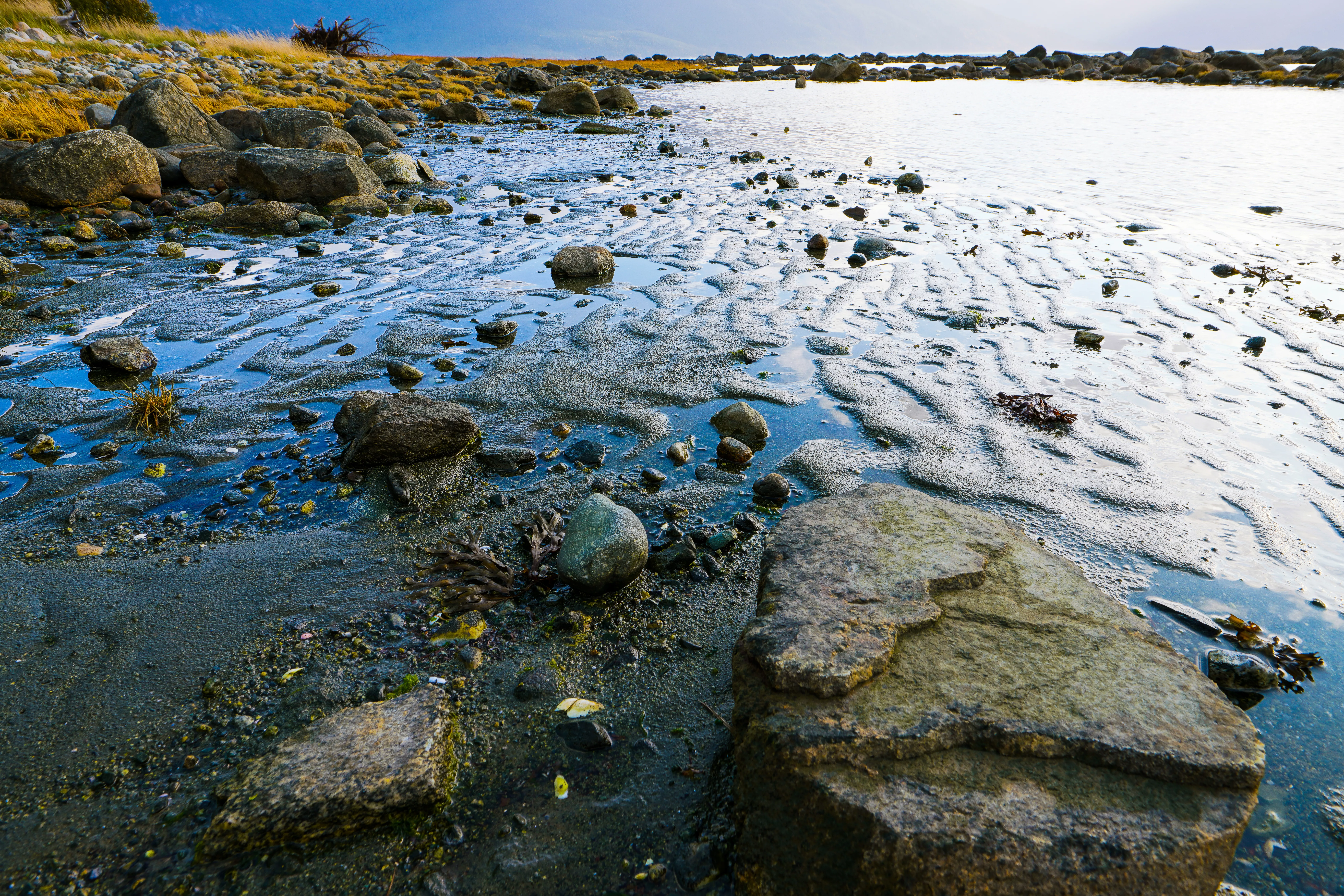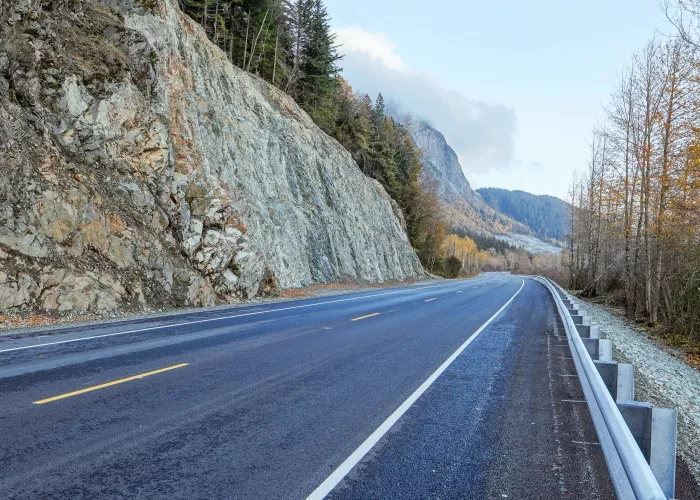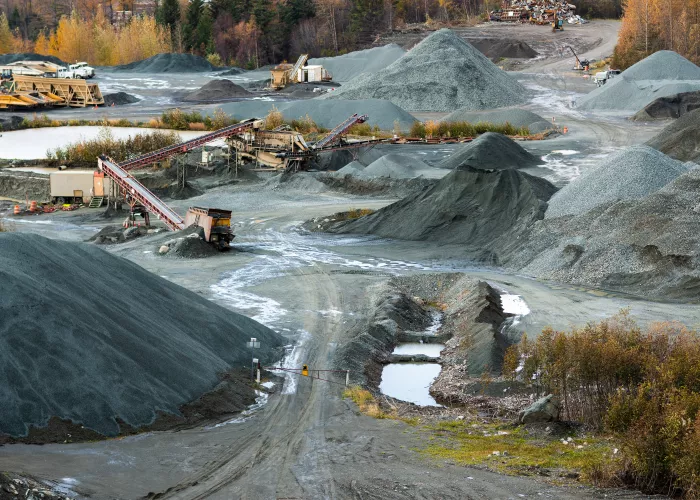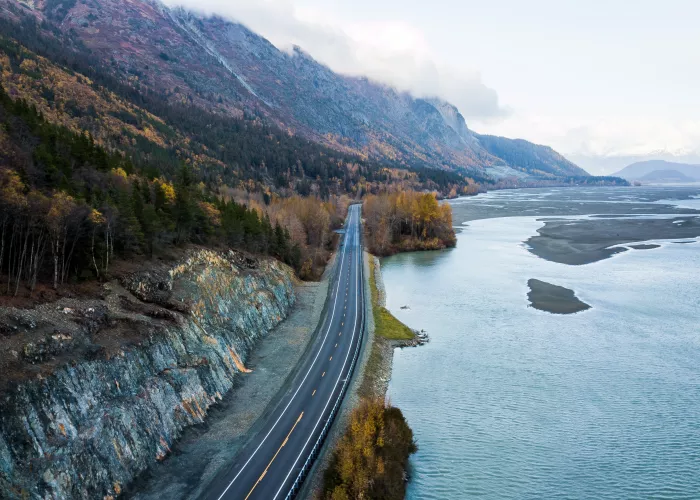
Alaska: Braving the elements
Over the last 20 years, Colaska has established itself as a major player in the construction and maintenance of transportation infrastructure in Alaska, and is now also the state’s leading producer of bitumen emulsion and aggregates. This US subsidiary of Colas undertakes projects in extreme environments. Take a dive with us into the Great North.
Commonly known as the Land of the Midnight Sun, the Last Frontier, or the Great Land, Alaska is larger than France, Germany, the United Kingdom and Italy combined, and is nearly one-fifth the size of the lower 48 states.
It boasts 30,000 miles of coastline, more than 3,000 rivers, 3 million lakes and 100,000 glaciers. Separated from the rest of the United States by Canada, Alaskans are deeply attached to this immense land and have forged strong community bonds, the better to withstand its long and frigid winters. After its purchase from Russia in 1867, American pioneers and traders flocked to the new state to take advantage of its rich natural resources. Today, oil and natural gas, timber, fishing and mining are its most dynamic industries, prompting foreign companies to set up operations.
Colaska's strategic acquisitions

Already present in the two neighboring Canadian provinces, Colas entered Alaska in 1999, with the acquisition of South East Construction (SECON), based in Juneau, the state capital. Soon thereafter, the subsidiary expanded its operations in order to produce its own construction materials, acquiring Quality Asphalt Paving (QAP) in 2000, followed by Exclusive Paving in 2004 and Emulsion Products in 2005. Another major step forward came in 2018, with the acquisition of Southeast Road Builders (SERB), which strengthened Colaska’s position in Southeast Alaska. This move unlocked new synergies for the subsidiary and helped it win new contracts both in Haines and on Prince of Wales Island. Each of these companies has its own plant and equipment – crushers, bitumen emulsion plants, and concrete plants – which means that teams are able to work on contracts throughout the entire state. Colaska’s main customers include the Alaska Department of Transportation (earthworks and road construction and maintenance), mining companies (construction of access roads), and the US Department of Defense (infrastructure construction for airfields and missile defense sites). Colaska has therefore understandably become a major player in the production of aggregates, asphalt mix, polymer-modified bitumens and concrete as well as road construction and maintenance in Alaska. The subsidiary has a long list of completed projects.
Challenges met by Colaska

Colaska regularly faces many challenges, whether relating to logistics (shortages or supply difficulties affecting specific raw materials) or technical aspects. For example, teams often need to transport materials by barge to remote sites not accessible by road. This can sometimes take up to 24 days, as is the case when heading north from the Aleutian Islands to Norton Sound on the Bering Sea. But Colaska must also deal with adverse weather conditions. The working season is short, usually running from April to mid-October. Some activities are carried out during the winter, if necessary, including the construction of ice roads and the excavation of materials from frozen river and pond beds to be put aside for use in the springtime. Colaska has overcome challenges like these on its projects for Parks Highway (in Central Alaska) and Haines Highway (in Southeast Alaska), for example. The main difficulty involved working under very cold and wet conditions, even though 2019 was one of the warmest years ever recorded in Alaska.

There were several major forest fires, and measures to bring these fires under control led to traffic restrictions. As another example, in 2018, just southeast of Fairbanks at the North Pole, Colaska installed 55 kilometers of pre-insulated water pipes of varying dimensions and carried out modernization and expansion work at the existing water treatment plant. The work began in January, and thus deep in the winter, to lay the pipes in wet regions and in regions where the high water table was still frozen. The teams managed to avoid thawing the permafrost, while also preventing it from drying out. In 2019, Colaska carried out a number of other major projects throughout the state, including road resurfacing work on Glenn Highway (in the southern part of the state) and runway rehabilitation at Anchorage Airport.